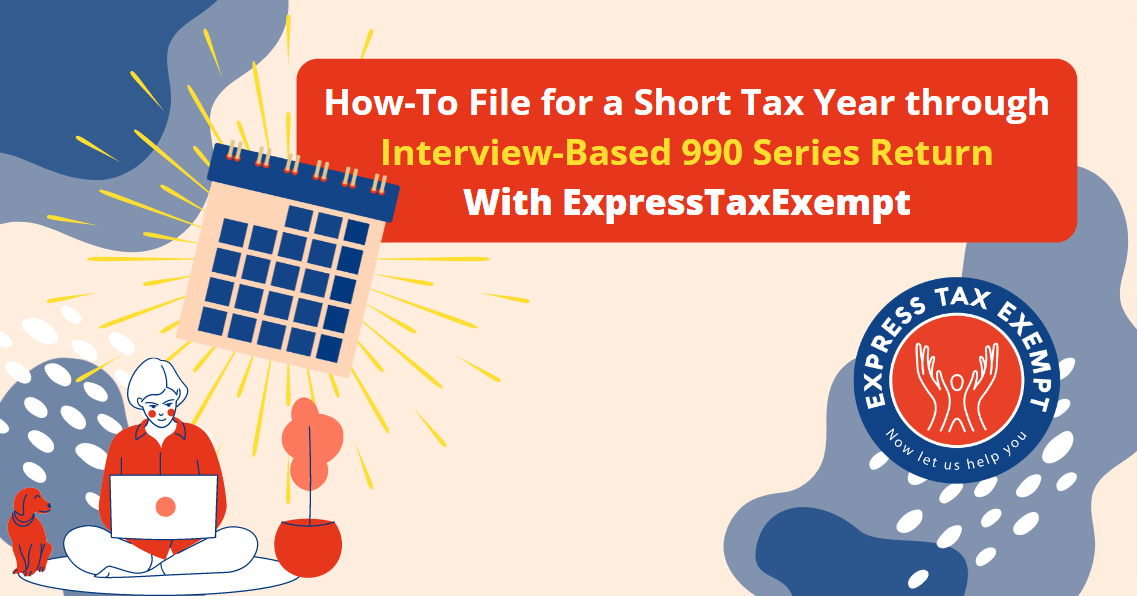




Public Charities vs Private Foundations: What is the Difference?
501(c)(3) Public Charity and Private Foundation - An Overview
- Updated April 21, 2023 - 3.00 PM Admin, ExpressTaxExemptThe Internal Revenue Service (IRS) established section 501(c)(3) to facilitate tax exemption for all non-profit organizations that operate for any charitable purposes.
Any non-profit organization that obtains 501(c)(3) tax-exempt status from the IRS is classified either as a Private Foundation or as a Public Charity.
This article discusses the description of both the categories, the key differences between a Private Foundation and a Public Charity, the classification criteria, and the tax filing requirements of each category.
Interested in learning more about 501(c)(3) status?
To learn more about 501(c)(3) Tax-Exempt Status and how organizations obtain it, click here.
Table of Content
2. What is a Private Foundation?
3. What are the Key Differences between Public Charities and Private Foundations?
4. How does the IRS differentiate between a public charity and a private foundation?
5. What are the Tax Filing Requirements of Public Charities and Private Foundations?
6. E-File Form 990 for your Public Charity or Private Organizations with ExpressTaxExempt
1. What is Public Charity?
Any non-profit organization that receives a major portion of its financial support or contributions from the general public is categorized as a Public Charity by the IRS.
For Example : Churches, Hospitals, etc
For More : Check the list of organizations under public charities.
2. What is a Private Foundation?
Any non-profit organization that receives a major portion of its financial support or contributions from a single source is categorized as a Private Foundation by the IRS.
3. What are the Key Differences between Public Charities and Private Foundations?
Here is a summary of some of the major differences between public charities and private foundations.
| Characteristics | Public Charities | Private Foundations |
|---|---|---|
| Sources of Support |
|
|
| Management |
To make sure that the organization stays true to its charitable purpose, the board members of a public charity need to be authorized by the IRS. |
The private foundations are usually controlled by an individual or members of one family or group. |
| Nature of Operations |
A public charity operates and gets involved in charitable activities directly. |
Usually, a private foundation provides grants and support to other individuals or charities rather than operating directly towards a charitable purpose. |
| Tax Benefits | Public charities can receive more tax-deductible contributions. |
The tax-deductible contributions received by the private foundations will be comparatively lesser. |
4. How does the IRS differentiate between a public charity and a private foundation?
The IRS established a standard set of procedures to differentiate the public charity or private foundation status.
For Public Charities,
Generally, the IRS categorizes 501(c)(3) tax-exempt organizations using the following two methods.
-
Nature of Activities
-
Organizations that operate solely for charitable purposes can automatically qualify as public charities. Some examples include
- Churches
- Educational Institutions
- Hospitals and Medical Research Organizations
- Certain Organizations Related to Colleges and Universities
- Governmental Units
- Organizations that support other public charities can also be categorized as public charities.
- Organizations that operate specifically for testing public safety fall under the category of public charities.
-
Organizations that operate solely for charitable purposes can automatically qualify as public charities. Some examples include
-
Public Support Test
- The Public Support Test is a systematic procedure followed by the IRS to check the eligibility of a tax-exempt organization that wants to claim the status of public charity voluntarily.
-
There are two types of public support tests.
- 509(a)(1) Test - For the organizations under sections 509(a)(1) and 170(b)(1)(A)(vi) of the IRC.
- 509(a)(2) Test - For the organizations under section 509(a)(2).
These tests measure the organization’s public support over a five-year period.
Interested in learning more about the public support test?
For more information on the public support test and the requirements and qualification criteria associated with it, click here.
Organizations that fail the public support test can be recategorized as private foundations.
For Private Foundations,
- Any 501(c)(3) tax-exempt organization that doesn't fall into the categories explained under public charities will be automatically treated as a private foundation by the IRS.
- Sometimes, even some of the nonexempt charitable trusts under section 4947(a)(1) will be treated as private foundations with some exceptions.
- Organizations that made an election under section 41(e)(6)(D)(iv) will be treated as private foundations as well.
These organizations must provide timely notice to the IRS if they don't want to be treated as private foundations.
5. What are the Tax Filing Requirements of Public Charities and Private Foundations?
Generally, the non-profit organizations that obtained 501(c)(3) status should use the Form 990 series to file their return with the IRS every year.
Public Charities
Based on the gross receipts and assets they receive, public charities may use three different types of forms for annual tax filing.
| Form Type | Conditions |
|---|---|
| Form 990-N | Public charities with gross receipts of $50,000 or less |
| Public charities with gross receipts < $200,000 and total assets < $500,000 | |
| Form 990 | Public charities with gross receipts ≥ $200,000 or total assets ≥ $500,000 |
Private Foundations
| Form Type | Conditions |
|---|---|
| Form 990-PF | Irrespective of the gross receipts or assets, all the 501(c)(3) tax-exempt private foundations should use this form for tax filing. |
Are there any additional filing requirements for Public Charities and Private foundations?
Based on the nature of their activities, all tax-exempt 501(c)(3) public charities and private foundations may need to include appropriate Schedules with the main form. Visit here to learn more about 990 Schedules.
6. E-File Form 990 for your Public Charity or Private Organizations with ExpressTaxExempt
ExpressTaxExempt supports electronic filing of Form 990 series, including 990, 990-EZ, 990-N, 990-PF, 990-T, and extension Form 8868.
The IRS mandates that all 990 returns be filed electronically, with ExpressTaxExempt, the market-leading IRS-authorized e-file provider, you can easily and accurately e-file Form 990. You can choose from an interview-style or form-based preparation, depending on your familiarity with the 990 Series.
With our Internal Audit Checks, filing an accurate form has never been easier! You can easily track the status of the forms you file from your account dashboard, and if you need help during the 990 e-filing process, our live customer support team is available by phone, email, and live chat.





